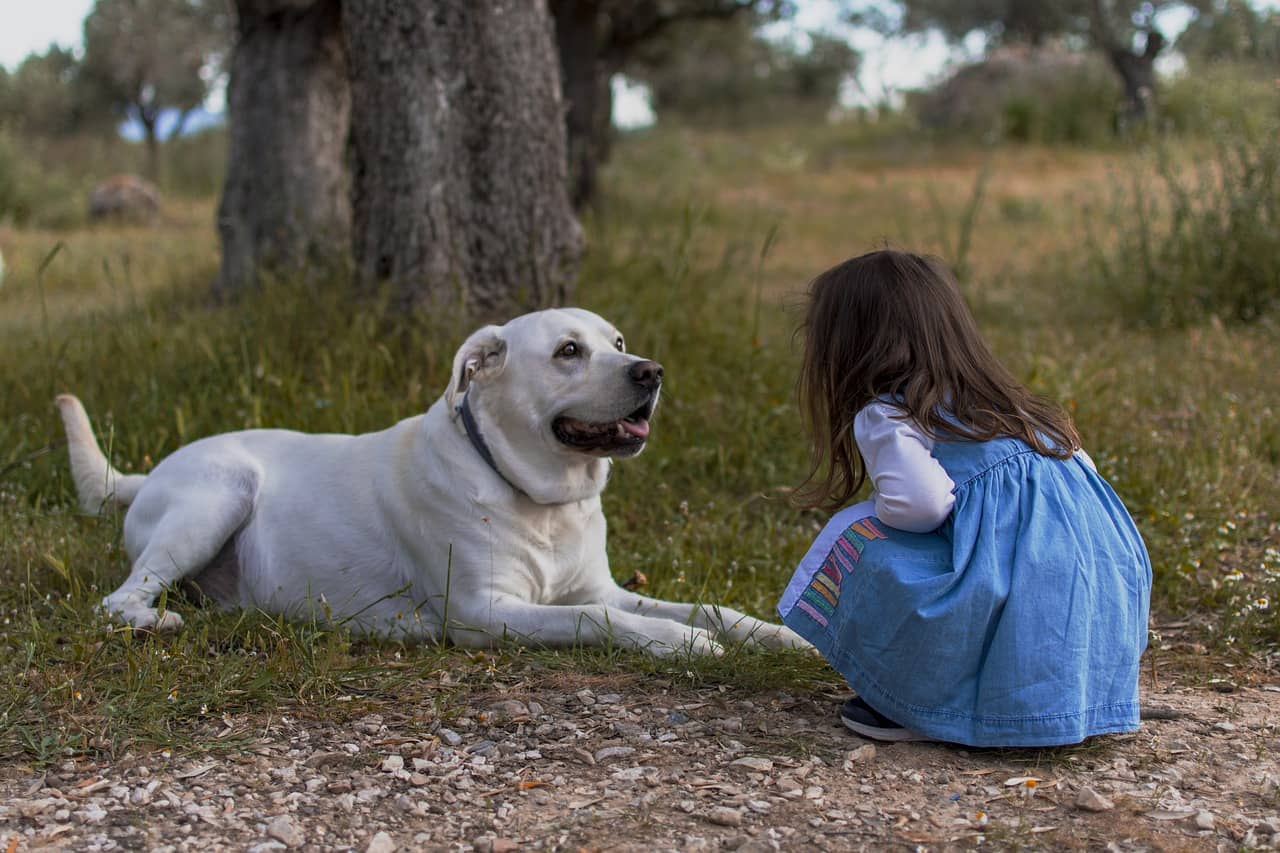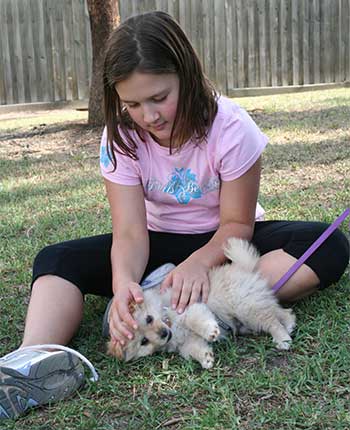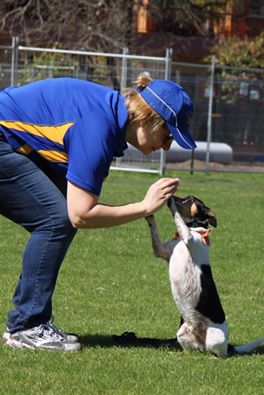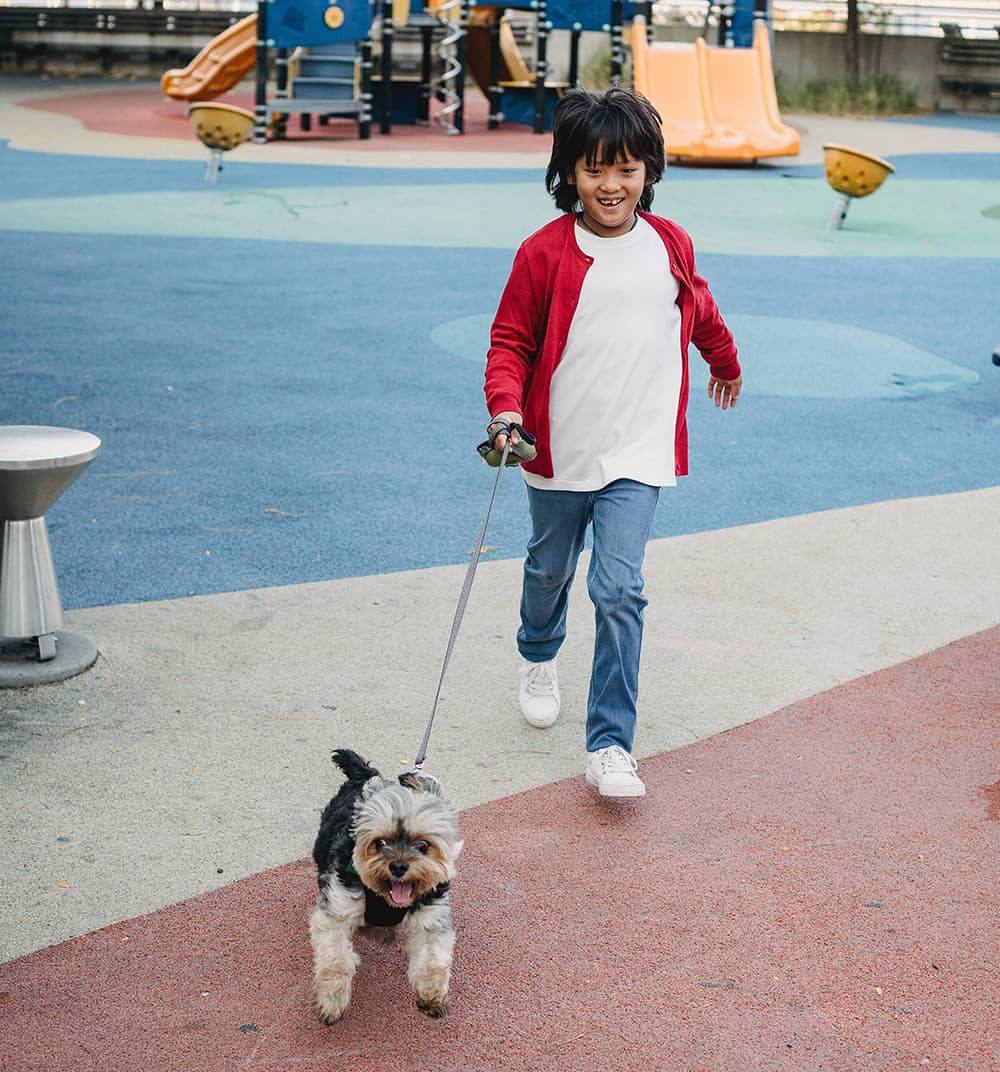All children should have the experience of having a dog as part of their family
It is an important part of growing-up as it teaches young children to respect animals and engenders a sense of responsibility towards them. Be that as it may, it is absolutely vital for parents of young children, to ensure that not only is their dog educated through obedience training, but also their children learn clearly how they should behave towards their canine companion. By doing so, the risk of injury to children through misunderstandings, is minimised and the relationship between dog and owner is perpetuated.
Command Dog Training School, through its Children-Awareness Program (CAP) conducted at many schools and community organisations, teaches children how to behave amongst their dogs. For further information on group classes or private Home Training Service, please call our office on telephone (03) 9877 6522.
The following points can be used as a general guide for parents with young children and a family dog.
All children should have the experience of having a dog as part of their family
It is an important part of growing-up as it teaches young children to respect animals and engenders a sense of responsibility towards them. Be that as it may, it is absolutely vital for parents of young children, to ensure that not only is their dog educated through obedience training, but also their children learn clearly how they should behave towards their canine companion. By doing so, the risk of injury to children through misunderstandings, is minimised and the relationship between dog and owner is perpetuated.
Command Dog Training School, through its Children-Awareness Program (CAP) conducted at many schools and community organisations, teaches children how to behave amongst their dogs.
For further information on group classes or private Home Training Service, please call our office on telephone (03) 9877 6522.
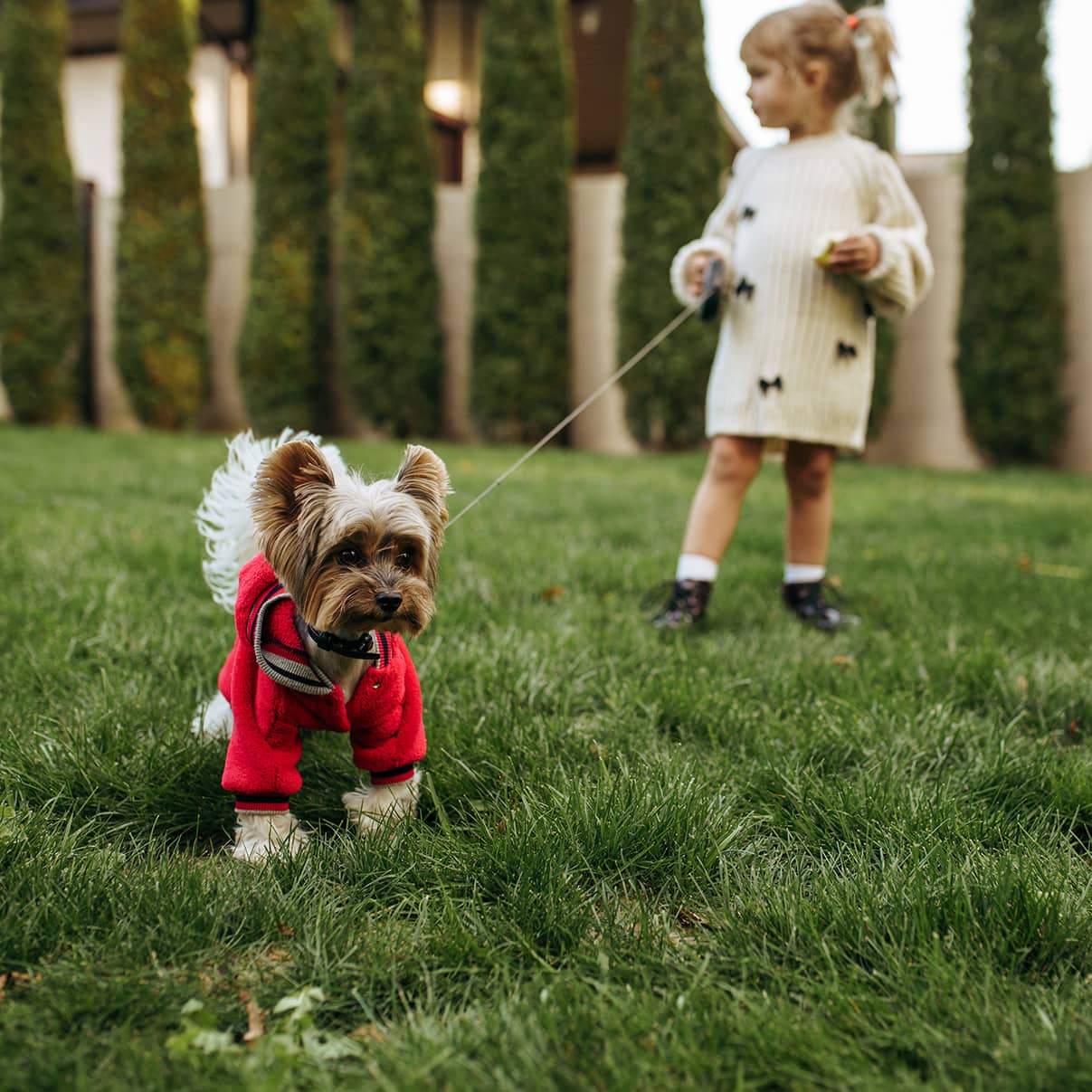
General Guidelines For Children On Dealing With The Family Dog
Do's
- Have your dog properly Obedience Trained. By doing so, the dog learns subordinance in the family structure and to accept commands by the pack leader (the owner).
- Always supervise any interaction between young children and dogs. This ensures an adult can intervene if the play becomes too rough by either dog or child.
- Ensure the dog is never teased by children, particularly as a puppy. Otherwise the dog will grow up with suspicion and distrust towards them. This invariably leads to aggressive behaviour in dogs, levelled at young children.
- If the dog shows signs of protective aggression, i.e. growls or bares its teeth towards children if they approach its food bowl, toys, bones and other possessions, remove the items immediately and call Command Dog Training School for help.
- Be particularly watchful of dog’s burying bones in the garden. Although they are out of sight, the dog may still consider this as a possession it must guard. Therefore, do not allow you dog to bury its bone for this reason.
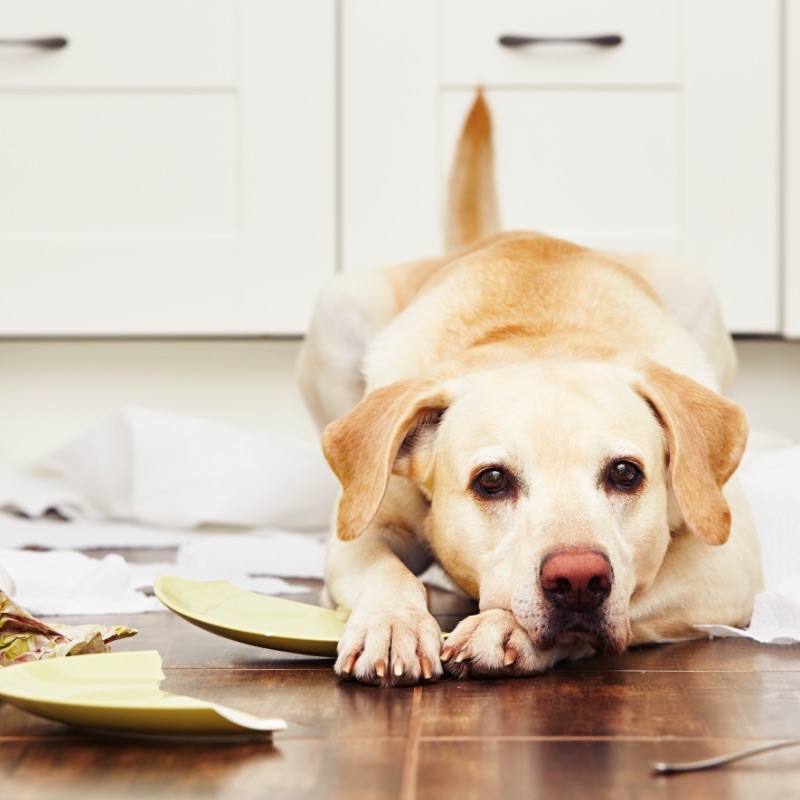
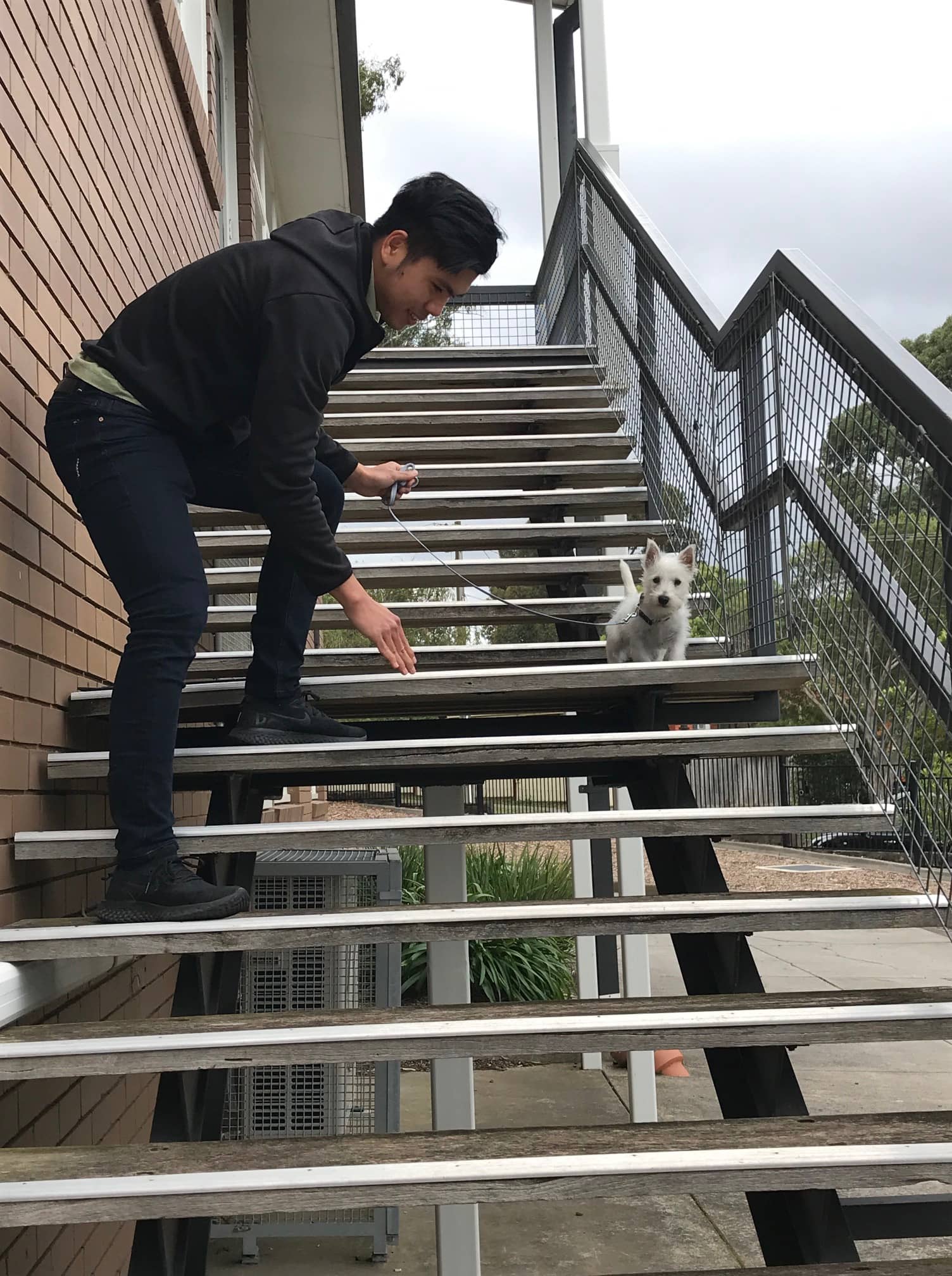
Dont's
- Never allow children to give food by hand to the dog. This can lead to the dog snapping at children, every time it sees them holding food.
- Do not allow rough-house games such as physically pushing, shoving, over-handling of your dog and play-biting. Although many dogs love this type of play amongst themselves, they should never conceive they can bite humans in any way, shape or form. Otherwise, this may lead to young children being knocked over and injured, or bitten due to the dog’s desire to play-bite.
- Do not allow children to approach the dog whilst it is eating. Although all dogs should accept this, it is better to be safe then sorry.
- Never allow a dog to sleep on a child’s bed or other possession. This could lead to protective aggression at a later stage. When bringing a dog inside the house, teach it to lie down on its own mat or blanket, but on the floor. Dog’s should not be allowed on the couch with the humans members of the family.
- Avoid possessiveness in dogs. Teach the dog to accept having its toys picked up by your children and then immediately given back. By doing so the dog will learn that the children are not going to steal its possessions.
General guidelines for children on dealing with ALL dogs
Do's
- Before patting a dog, first allow it to smell the back of your hand, then slowly pat it under its chin. Never over its head.
- If a dog rushes at you barking, never run or scream. Try and stay calm until help arrives.
- If a dog rushes at you barking and runs behind you, always turn and face the dog. If you are near a fence or a wall, stand with your back against it. Most dogs will not rush in and bite if you are facing them. Stay calm and wait until help arrives.
- If a dog does jump on you and tries to bite, cover your face with your arms to protect it. Stay upright.
- If you are playing ball games in your backyard and the ball goes over the fence where a dog lives, never climb over the fence to retrieve the ball. Always ask the dog’s owner to retrieve the ball for you.
- Remember that all dogs can bite and children must always be cautious of them.
- Children under 10 years of age should be supervised when playing with dogs.
- Never stare a dog in the eyes. This creates suspicion in some dogs, particularly nervous ones. This could lead to the dog biting.
Dont's
- Never approach a dog from behind as it may startle and could bite.
- Never hug a dog around its neck or place your face near the dog’s.
- Never approach or pat a dog that has been tied up on its own.
- Never approach a dog if it is eating its food or chewing a bone.
- Never enter a yard at all if it displays a dangerous-dog sign.
- Never pat an unknown dog
- Never tease a dog with food or it may bite your hand by accident. Also never tease a dog on the other side of a fence.
Before Baby Comes Home:
5 Easy Steps To Introducing Your Dog To Your New Baby
- When your baby is born and before baby comes home, bring back baby’s bunny rug and allow your dog to sniff it. This new smell will be peculiar to your dog and in some cases the dog may show suspicion towards it. However, repeating this procedure each day until baby arrives home, allows the dog to become accustomed to the scent. Consequently, when baby arrives home for the first time, baby’s scent will be familiar to the dog. The dog should immediately begin to accept the new arrival.
- On your arrival at home, the mother should give baby to the father to hold, whilst she walks in first and greets the dog. The mother has been away for a short time and the dog will be pleased to see her affections have not waned in her absence. Also, baby’s scent will be on the mother, so again the dog becomes more familiar to it. Dad should then walk in holding baby and give the dog a simple command it knows, such as “SIT”. This reinforces the pack-leader’s dominance and the dog’s display of subordinance. Praise must also be given to the dog each time it obeys.
- Over the next few days the dog should be introduced more and more to the baby. This can be simply achieved by walking with baby in the backyard whilst the dog is playing. The dog should be spoken to in a soft soothing tone, patted and gradually allowed to sniff baby. You should then give the dog basic commands such as sit or stay to reinforce your “Pack Leadership” or order of dominance. Allowing the dog to come inside and lie on its mat when baby is being fed, will further assist in the conditioning process.
- Obedience Training whether in a class or privately, should continue to ensure the relationship between owner and dog is perpetuated. As time goes on, the dog will have become accustomed to the newest member of the family and life will return to normal for it.
- The important thing to remember is that you must plan for baby’s arrival with respect to your dog. In doing so, the possibility of problems diminish greatly. If you require further help on this issue, Command Dog Training School’s Home Training Service, can provide a qualified and accredited Instructor to come to your home and give a talk and guidance on this subject.
Before Baby Comes Home:
5 Easy Steps To Introducing Your Dog To Your New Baby
- When your baby is born and before baby comes home, bring back baby’s bunny rug and allow your dog to sniff it. This new smell will be peculiar to your dog and in some cases the dog may show suspicion towards it. However, repeating this procedure each day until baby arrives home, allows the dog to become accustomed to the scent. Consequently, when baby arrives home for the first time, baby’s scent will be familiar to the dog. The dog should immediately begin to accept the new arrival.
- On your arrival at home, the mother should give baby to the father to hold, whilst she walks in first and greets the dog. The mother has been away for a short time and the dog will be pleased to see her affections have not waned in her absence. Also, baby’s scent will be on the mother, so again the dog becomes more familiar to it. Dad should then walk in holding baby and give the dog a simple command it knows, such as “SIT”. This reinforces the pack-leader’s dominance and the dog’s display of subordinance. Praise must also be given to the dog each time it obeys.
- Over the next few days the dog should be introduced more and more to the baby. This can be simply achieved by walking with baby in the backyard whilst the dog is playing. The dog should be spoken to in a soft soothing tone, patted and gradually allowed to sniff baby. You should then give the dog basic commands such as sit or stay to reinforce your “Pack Leadership” or order of dominance. Allowing the dog to come inside and lie on its mat when baby is being fed, will further assist in the conditioning process.
- Obedience Training whether in a class or privately, should continue to ensure the relationship between owner and dog is perpetuated. As time goes on, the dog will have become accustomed to the newest member of the family and life will return to normal for it.
- The important thing to remember is that you must plan for baby’s arrival with respect to your dog. In doing so, the possibility of problems diminish greatly. If you require further help on this issue, Command Dog Training School’s Home Training Service, can provide a qualified and accredited Instructor to come to your home and give a talk and guidance on this subject.
Have questions you need answered?
If you’re currently unsure of how to approach your need for puppy training, obedience classes or support towards a specific issue, please do not hesitate contact us on 03 9877 6522.
Alternatively, get started and ensure you get a spot in our next session by enrolling online now.
- (03) 9877 6522
- [email protected]
- 19 Jeffery St, Blackburn VIC 3130, Melbourne, Australia

